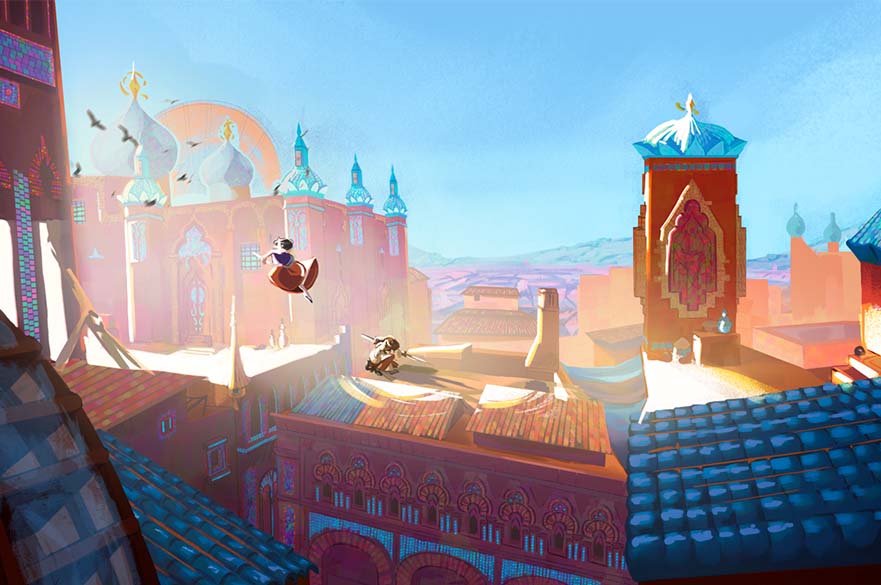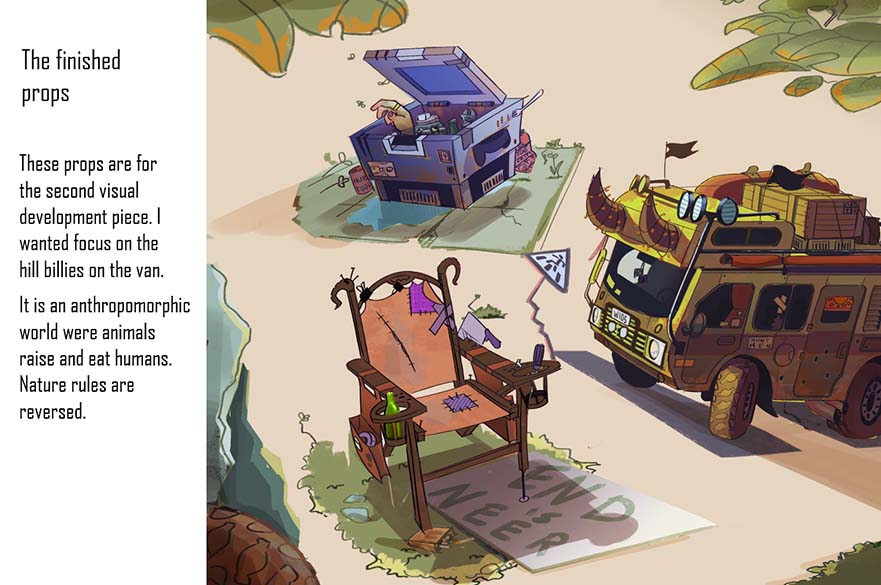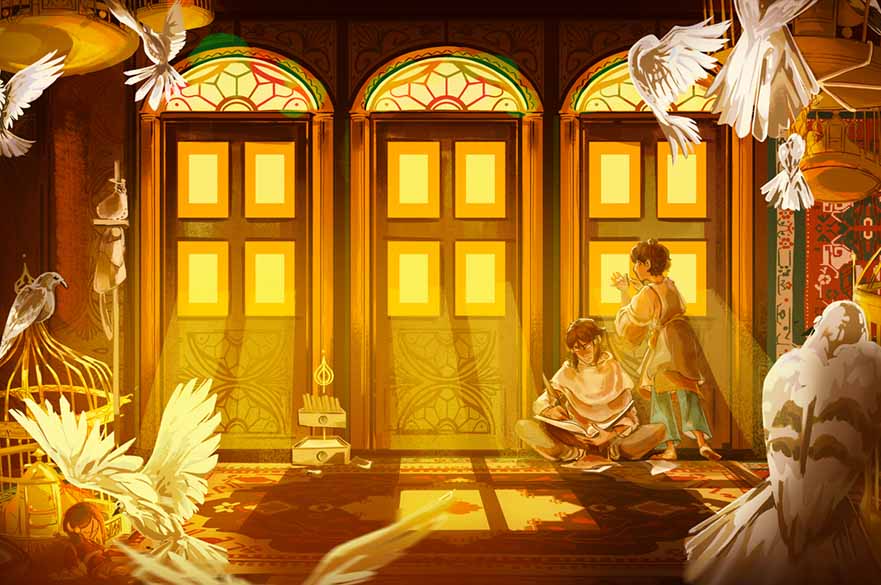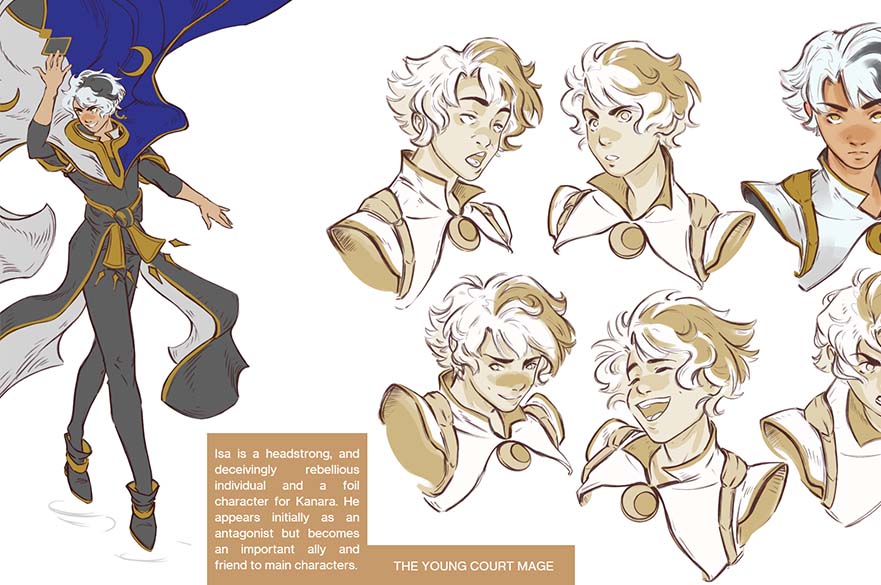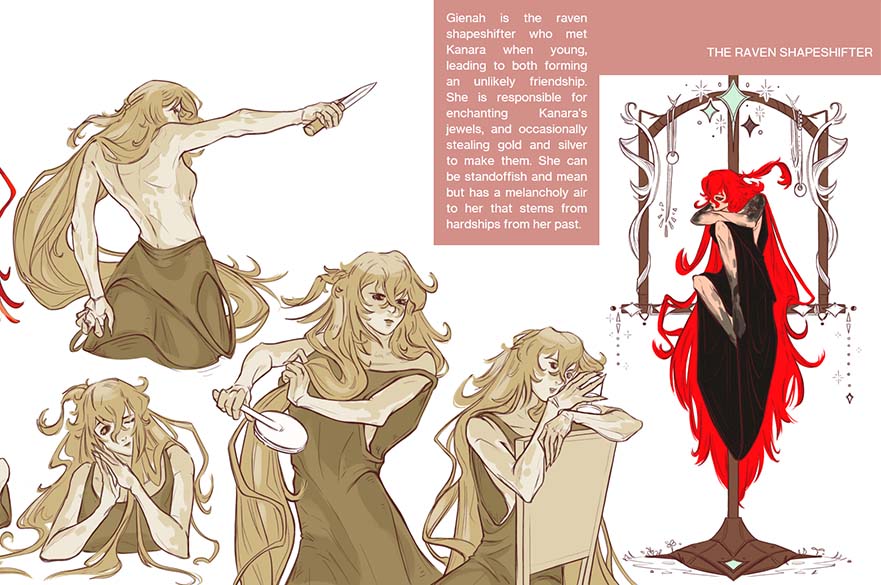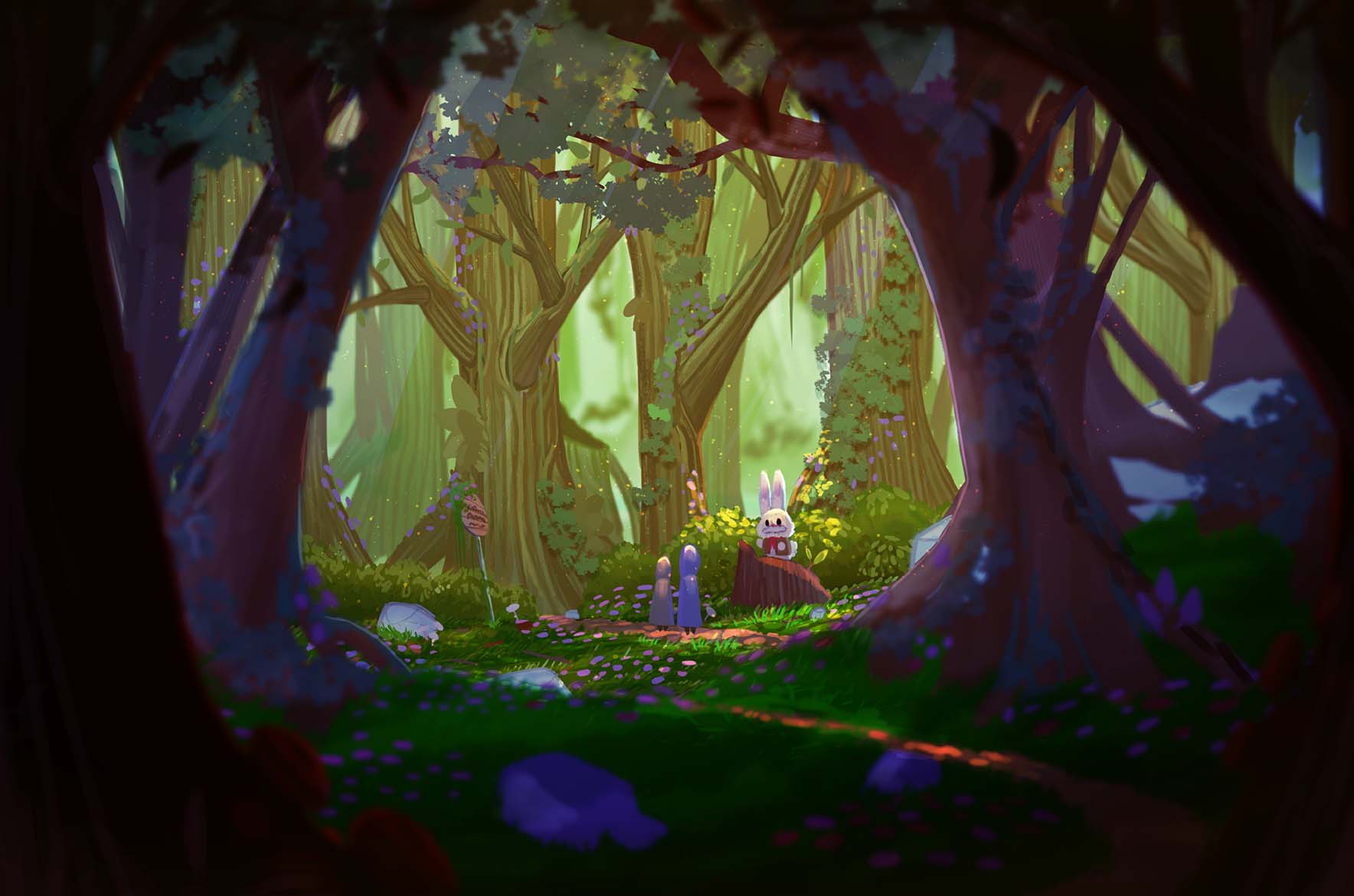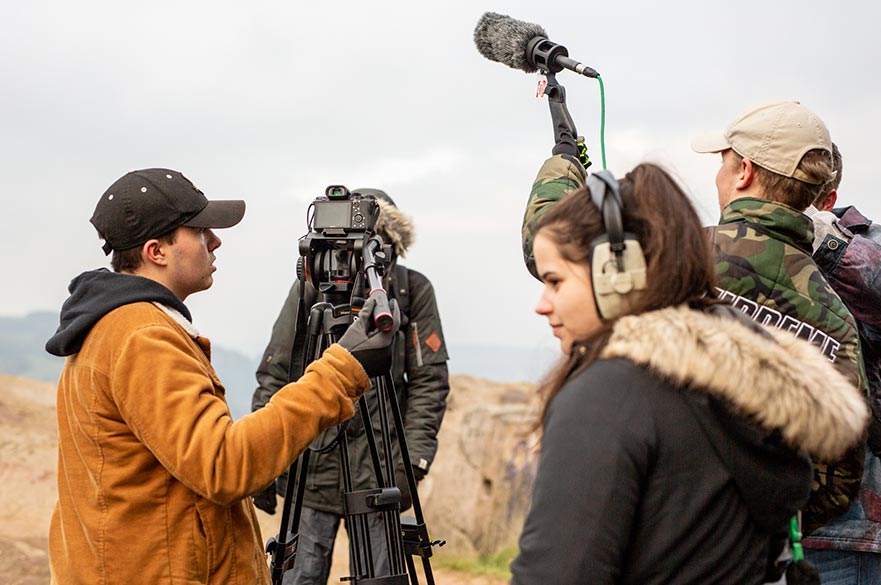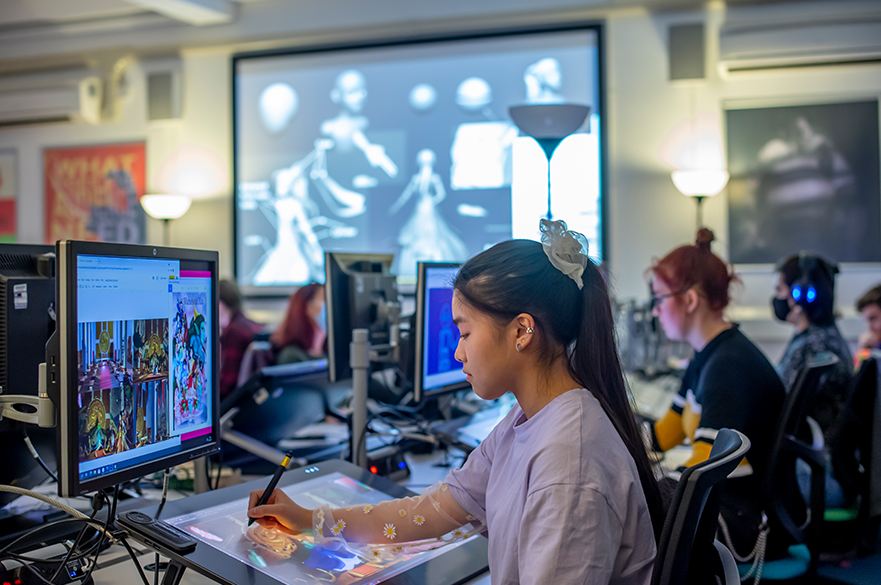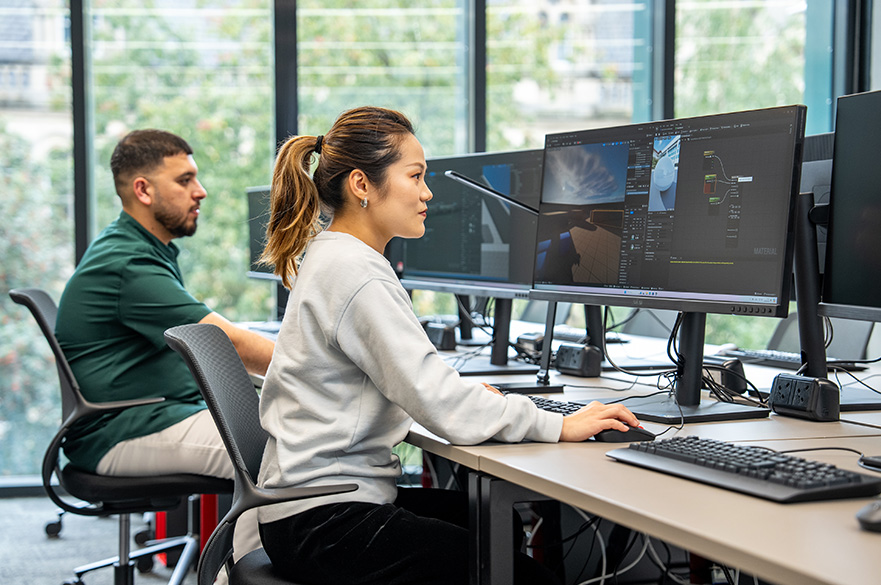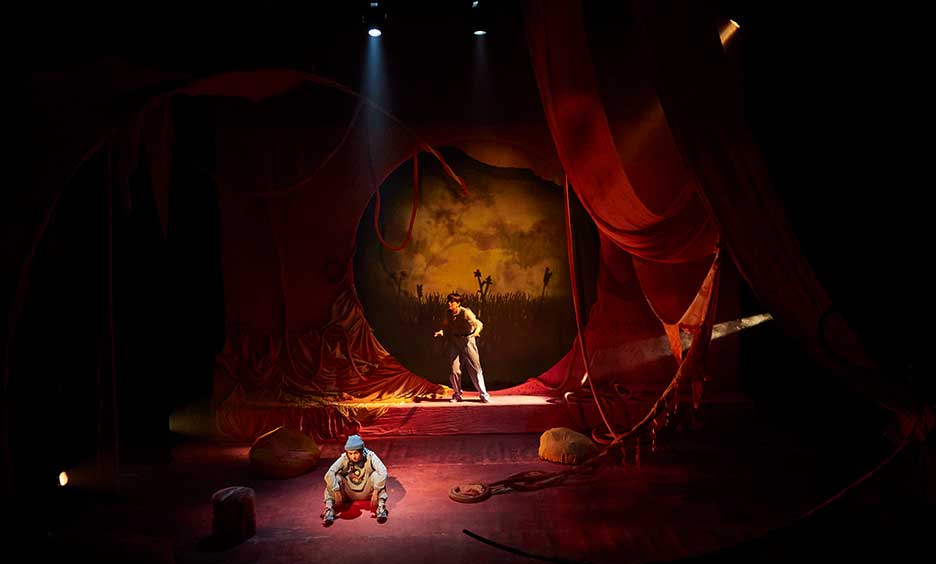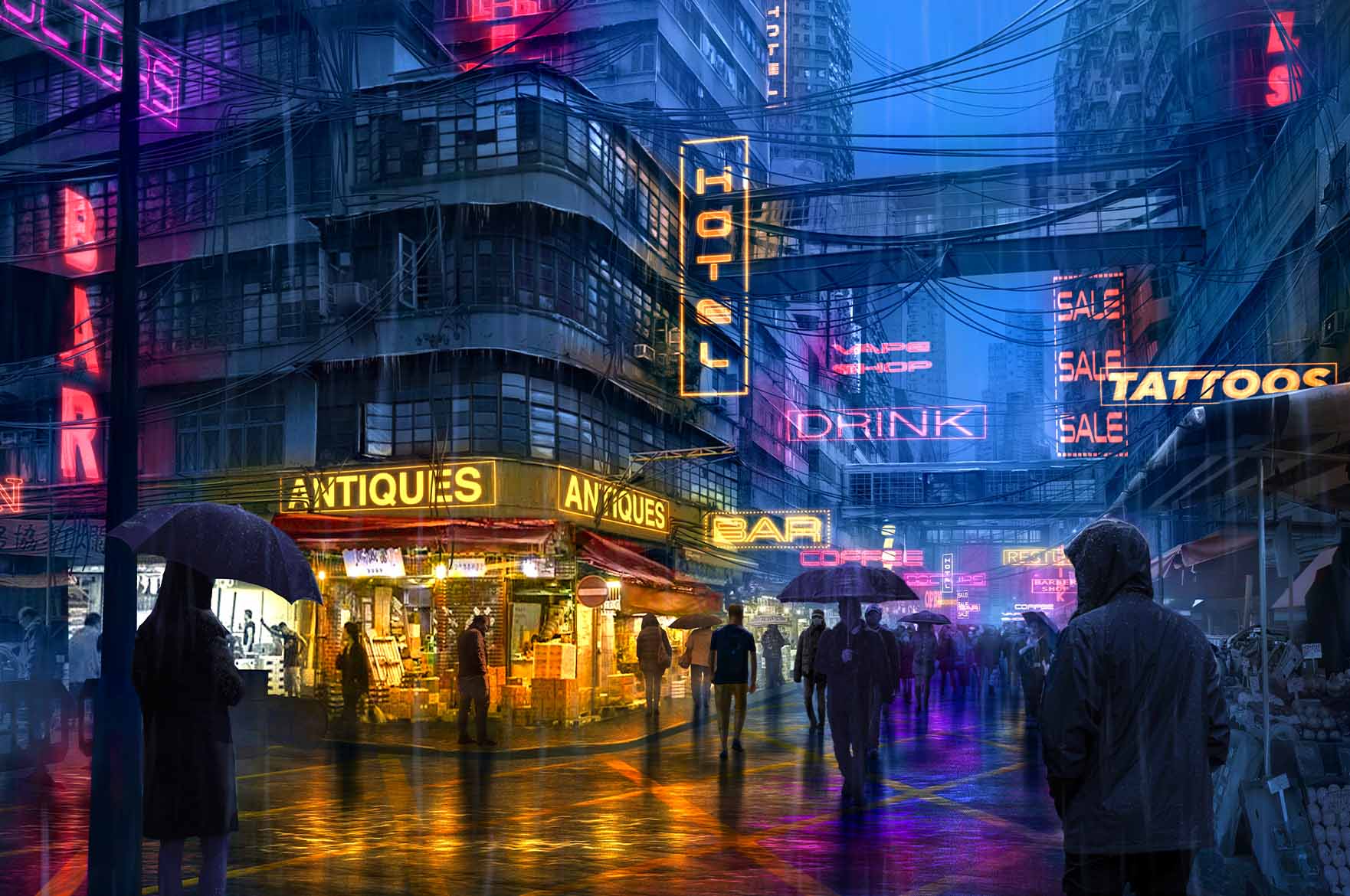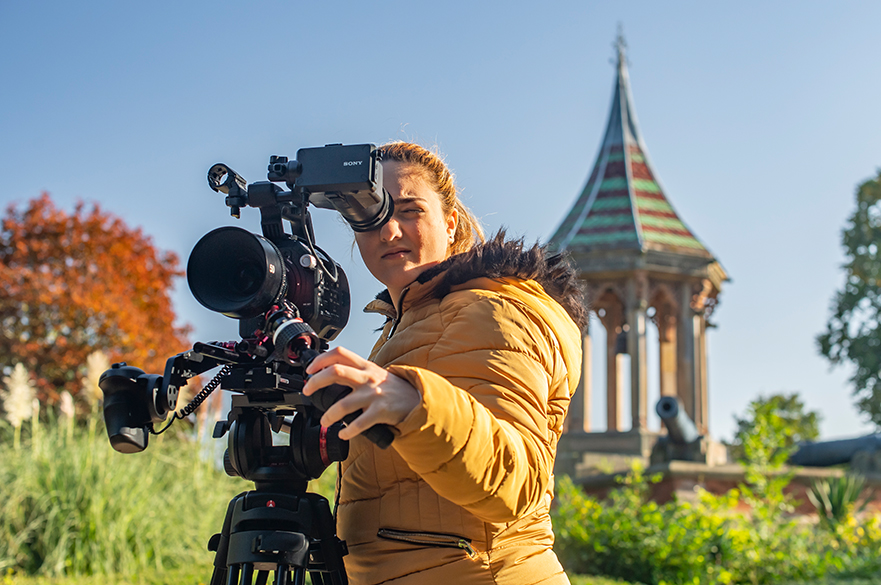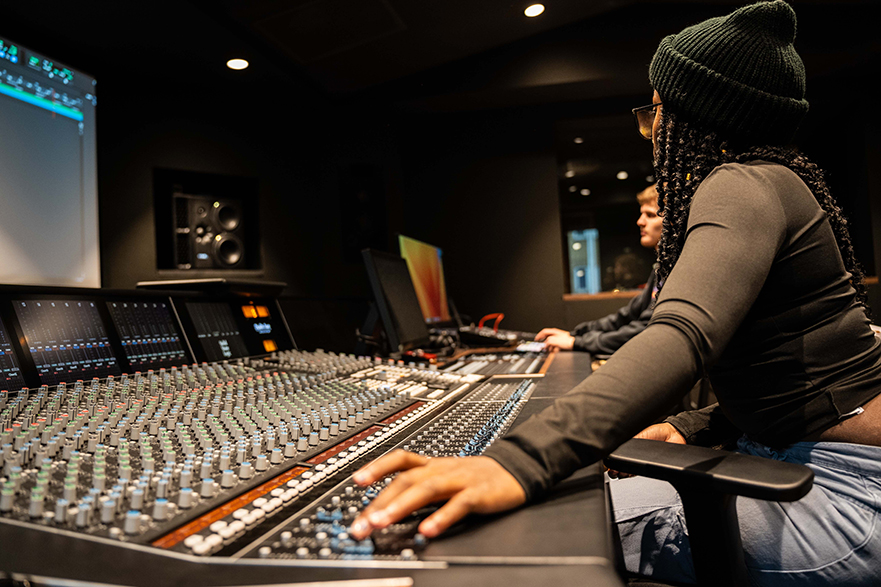About this course
This degree is delivered at our London Campus in Whitechapel.
If you have ever played a video game and been drawn in by the immersiveness of the environment art or marvelled at the imagination of the characters or creatures, the BA (Hons) Games Art course may be for you. Teaching you on industry-standard hardware and software, this course will advance your creative and artistic skills with opportunities to work collaboratively with game designers, animators and Visual Effects artists to create Blueprint games. Working alone, in teams or in industry focused workshops, you’ll develop the digital toolset, creative invention, and contextual knowledge to bring your visual imagination to life. You’ll graduate with an industry-ready reel demonstrating your invention and artistic prowess.
-
You’ll have the opportunity to complete a work experience placement of up to a year in length. Dependent on the duration of your placement, you could gain an additional Diploma or Certificate in Professional Practice.
-
Develop your professional skills through self-initiated work experience placements, industry competitions, collaborations with organisations and guest lectures.
-
You’ll be able to personalise your studies by choosing from a range of up to eight optional modules. Your course also includes our School-wide, sector-leading CoLab module.
20
What you’ll study
Teaching you on industry-standard hardware and software, this course will advance your creative and artistic skills with opportunities to work collaboratively with game designers, animators and Visual Effects artists to create Blueprint games. Working alone, in teams or in industry-focused workshops, you’ll develop the digital toolset, creative invention, and contextual knowledge to bring your visual imagination to life. You’ll graduate with an industry-ready reel demonstrating your invention and artistic prowess.
There is an opportunity for students to undertake a placement year, and transfer to the Sandwich route, please see further details in the ‘Year Three’ section below.
Principles of Screen Arts
(40 credit points)
Learn about, and put into practice, the principles of screen art that will serve as the foundation for your course. Throughout this module, you'll sharpen your skills and begin the journey of exploring perspective drawing, digital drawing and painting. You'll do this with a focus on the core elements of art theory such as line, shape, colour, form, texture, space, movement, and rhythm.
Introducing 2D Digital Art
(40 credit points)
Refine your digital art skills as you build your knowledge of anatomical figure drawing, digital drawing and painting through projects focusing on concept art, UI design and board game design.
Games Studies
(20 credit points)
Explore the captivating and fascinating history of game playing and associated game theory, and delve into the present-day impact of electronic gaming on commercial, ethical, and societal factors. Research and interrogate the wider social, ethical and global context of games production and consumption.
Introducing 3D Digital Art
(20 credit points)
Gain the skills and knowledge needed to create digital models and designs. You will learn about polygonal modelling, surfacing, and lighting techniques. In addition, workshops on life drawing will strengthen your understanding of the human form, combined with research into traditional visual art forms like painting.
Progressing 2D Digital Art
(40 credit points)
Building on the knowledge you developed in Introducing 2D Digital Art, you will further apply your understanding of 2D practices to choose from a range of briefs where you will progress your skills. These might include character and environment art, tabletop game art, 2D sprite-based game or puzzle game art.
OR
Progressing 3D Digital Art
(40 credit points)
Based on the 3D skills you developed in Year One, you will progress your abilities and widen your knowledge of digital modelling and lookdev. You will be introduced to digital sculpting and programs such as Substance Painter. Additional workshops in anatomical drawing and clay modelling will reinforce your understanding of 3D form – enhanced by active production research into natural, architectural, prop, and costume detail.
Games Art Studio
(40 credit points)
The aim of this module is to bring together like-minded game development students from Games Art and Games Design. Together, you'll work on projects to bring game ideas to life. Each project will be unique and challenge your collaborative skills and technical abilities, including one set by an industry partner.
CoLab: Research, Exploration and Risk-taking
(20 credit points)
Through active participation with team-based problem-solving, you will work together in mixed teams on a project where you will use your creative ideas to generate solutions to the challenge or brief. Your project will allow you to explore outside of your usual frames of reference and to move beyond your comfort zone. You can expect to engage in new conversations as you explore disruptive learning opportunities through participation in unfamiliar creative places and experiments as you embrace new opportunities.
Optional Module:
You will also choose one optional 20-credit module from:
- Storyboarding
- Character Ideation
- Experimental Animation
- Performance for Motion Capture
- Tabletop Game Development
- Interactive Narrative
- Virtual Production
- Prop Making
Optional Placement Year (Sandwich)*
We have an option for all of our students to undertake a placement year (Sandwich) and allow you to decide whether this is right for you once you have completed years 1 and 2 of your course. This time spent working in industry provides our students with crucial work experience, which is highly prized and much sought after by employers upon graduation. If you are successful in securing a placement you will have the chance to gain an additional Certificate or Diploma in Professional Practice, dependent on duration.
The additional placement year incurs a fee. For international students considering the transfer to the 4-yr SW route it’s important to seek advice from the International Student Support team and the Home Office regarding any potential visa implications and costs. For UK students, advice should also be sought regarding SLC eligibility, if applicable.
* If you choose to take the sandwich route option, you will still need to apply for this course with the full-time UCAS code: W206
Games Art Project
(60 credit points)
Define yourself as a games designer through personal projects. Develop your projects and reflect upon their degree of success either as individual self-directed project/s or as a primary creative on other students’ projects. You'll be challenged to display your mastery of industry-standard digital tools to create stunning visual aesthetics and your ability to critically evaluate technological research to shape your game design and decision-making.
Screen Arts Collaboration
(40 credit points)
Building on the collaborative skills you have developed in Year Two, you'll have the opportunity to work with other screen arts students to fully develop a group project with a negotiated outcome or with an industry partner. You'll explore audio and visual storytelling as a group, working as a multi-disciplinary team to effectively respond to a brief.
Games Entrepreneurship
(20 credit points)
Assess your previous learning and specialised direction to focus your final year effort towards building your graduate profile. Throughout the module, you will identify and evidence the required professional knowledge and skills aligning with your future goals in your final showcase and reflect upon the progression of your creative and technical processes and outcomes.
We regularly review and update our course content based on student and employer feedback, ensuring that all of our courses remain current and relevant. This may result in changes to module content or module availability in future years.
Student Work
Video Gallery
How you're taught
Teaching and learning experiences will include:
- Lectures and briefings
- Studio workshops
- Seminars
- Tutorials
- Peer and self-evaluations
- Verbal and visual presentations
- Teamwork
- Live projects
- Study trips
- Personal development planning.
Collaboration across courses
This course offers our new innovative collaboration module. This gives you the opportunity to work collaboratively with your contemporaries from a range of different art and design subjects and beyond. You’ll be working alongside artists, designers, photographers, illustrators, animators, and filmmakers on daring and creative projects that prepare you for a rewarding career in your chosen industry. Your project will allow you to explore how creativity can make an impact in society, as you choose a theme of sustainability, social justice, enterprise and innovation or community.
Exchange opportunities
If you’re thinking about studying part of your degree abroad, the course has exchange agreements with a number of institutions around the world.
Exchanges take place in Year Two of the course. You’ll receive guidance from the University about where you can study, and help in completing your application and arranging your exchange.
Showcase
You will be given the opportunity to exhibit your work during your time at NTU to members of the creative industries. Visit our ‘We Are Creatives’ showcase to take a look at the work of this year's graduating students’.
Careers and employability
Employability is a key focus of this course, with modules including initiatives such as live projects and trips, and the opportunity to exhibit your work, which will help to raise your profile and enhance your future career.
Our BA (Hons) Games Art course will prepare you for a broad range of careers in games art. This could include roles such as character artist, 3D modeller, environment artist, concept artist, storyboard artist, and 3D LookDev artist.
Connecting with industry and work placement opportunities
Industry professionals will visit the course to guest lecture and share their experiences. Live projects and competitions will help you to gain real experience of the industry, make contacts, and build your portfolio and CV.
You’ll be encouraged to undertake short periods of work experience alongside your studies. You will normally complete these placements during holiday periods, but you will have the option of taking up to two weeks out of term time, which you can negotiate with your tutor.
In addition, you’ll also have the opportunity to complete a longer work experience or placement, with the chance to gain an additional Diploma or Certificate in Professional Practice, dependent on duration. Course tutors and our Employability team are on hand to support you in applying for placement and professional practice opportunities.
YouFirst – working with our Employability team
Studying a creative degree in a large university has many benefits, none more so than having access to a large employability team.
Our friendly, experienced careers consultants will work closely with you at every stage of your career planning, providing personal support and advice you won't find in a book or on the Internet. You can benefit from this at any time during your studies and for up to three years after completing your course.
Creative Industries Federation
We are members of the Creative Industries Federation (CIF), which means students in the Nottingham School of Art & Design have the opportunity to sign up to free student membership. Creative Industries Federation are an organisation that represents, champions and supports the UK’s creative industries and membership grants students exclusive access to their selection of resources and events to help advance your career and connect with industry.
Campus and facilities
Campus is located in the vibrant Whitechapel district. With excellent public transport, you’ll be just a short walk, tube or bus ride from the popular destinations of Brick Lane and Spitalfields Market, and famous landmarks including Tower of London, Tower Bridge and The Gherkin.
Similar to our campus in Nottingham, you’ll access unrivalled facilities from day one. This includes a 600-capacity multipurpose venue, which will host live music, entertainment and esports, along with specialist studios and teaching spaces.
As well as housing world-class recording studios, you can also take advantage of a virtual production studio, event production space, and content creation edit suites.
Our design rooms and esports studio are equipped with Dell XPS PCs with i9 processors, RTX 4080 graphics, and either Dell 34" ultra-wide curved displays or Alienware 25" 360Hz displays.
In our Mac suites, you’ll work on Apple M2 Silicon with Dell 34" ultra-wide curved displays and in our scale-up room we have Microsoft’s Surface Laptop Studio with i7 processors and RTX 3050Ti graphics at all stations.
Entry requirements
UK students
- Standard offer: 112 UCAS Tariff points from up to four qualifications
- Contextual offer: 96 UCAS Tariff points from up to four qualifications
To find out what qualifications have tariff points, please use our tariff calculator.
Additional requirements for UK students
There are no additional requirements for this course.
Contextual offers
If you don’t quite meet our entry requirements, we might be able to make you a lower offer based on a range of factors, including your background (such as where you live and the school or college you attended), your experiences and your individual circumstances (you may have been in care, for example). This is called a contextual offer, and we get data from UCAS to help make these decisions. We do this because we believe everyone with the potential to succeed at NTU should have the opportunity to do so, no matter what barriers you may face.
Meeting our entry requirements
Hundreds of qualifications in the UK have UCAS Tariff points attached to specific grades, including A-levels, BTECs, T Levels and many more. You can use your grades and points from up to four different qualifications to meet our criteria. Enter your predicted or achieved grades into our Tariff calculator to find out how many points your qualifications are worth.
Other qualifications and experience
NTU welcomes applications from students with non-standard qualifications and learning backgrounds, either for year one entry or for advanced standing beyond the start of a course into year 2 or beyond.
We consider study and/or credit achieved from a similar course at another institution (otherwise known as credit transfer), vocational and professional qualifications, and broader work or life experience.
Our Recognition of Prior Learning and Credit Transfer Policy outlines the process and options available for this route. If you wish to apply via Recognition of Prior Learning, please contact the central Admissions and Enquiries Team who will be able to support you through the process.
Getting in touch
If you need more help or information, get in touch through our enquiry form.
International students
Academic entry requirements: 112 UCAS Tariff points from up to four qualifications. We accept equivalent qualifications from all over the world. Please check your international entry requirements by country.
English language requirements: See our English language requirements page for requirements for your subject and information on alternative tests and Pre-sessional English.
Additional requirements for international students
If you need help achieving the academic entry requirements, we offer a Foundation preparation course for this degree. The course is offered through our partner Nottingham Trent International College (NTIC) based on our City campus.
English language requirements
View our English language requirements for all courses, including alternative English language tests and country qualifications accepted by the University.
If you need help achieving the language requirements, we offer a Pre-Sessional English for Academic Purposes course on our City campus which is an intensive preparation course for academic study at NTU.
Other qualifications and experience
If you have the right level of qualifications, you may be able to start your Bachelors degree at NTU in year 2 or year 3. This is called ‘advanced standing’ entry and is decided on a case-by case basis after our assessment of your qualifications and experience.
You can view our Recognition of Prior Learning and Credit Transfer Policy which outlines the process and options available, such as recognising experiential learning and credit transfer.
Sign up for emails
Sign up to receive regular emails from the International Office. You'll hear about our news, scholarships and any upcoming events in your country with our expert regional teams.
Getting in touch
If you need advice about studying at NTU as an international student or how to apply, our international webpages are a great place to start. If you have any questions about your study options, your international qualifications, experience, grades or other results, please get in touch through our enquiry form. Our international teams are highly experienced in answering queries from students all over the world.
Policies
We strive to make our admissions procedures as fair and clear as possible. To find out more about how we make offers, visit our admissions policies page.
